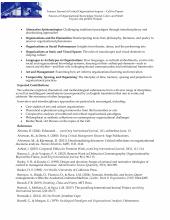Refugee and immigrant settlement is situated within a context of government policy and practice, as well as a receiving or ‘host’ community. Traditionally these factors have been isolated, in policy and research, such that much attention has been devoted to the study of refugee and migrant ‘adjustment’ with relatively less attention to how this is influenced by the attitudes and expectations of members of the host community. Moreover, governments’ policies have focused on programs to assist refugees and migrants in their transition to a new community, but have neglected the needs of host community members in the acculturation process. This has served to further marginalise migrant and refugee communities within the Australian context, and has failed to recognise the reciprocal and dynamic nature of intergroup relations. In this paper I discuss these limitations in the context of an interactive acculturation framework, with particular emphasis on research that examines host community perspectives on refugee and immigrant settlement; the discourse of the dominant.





